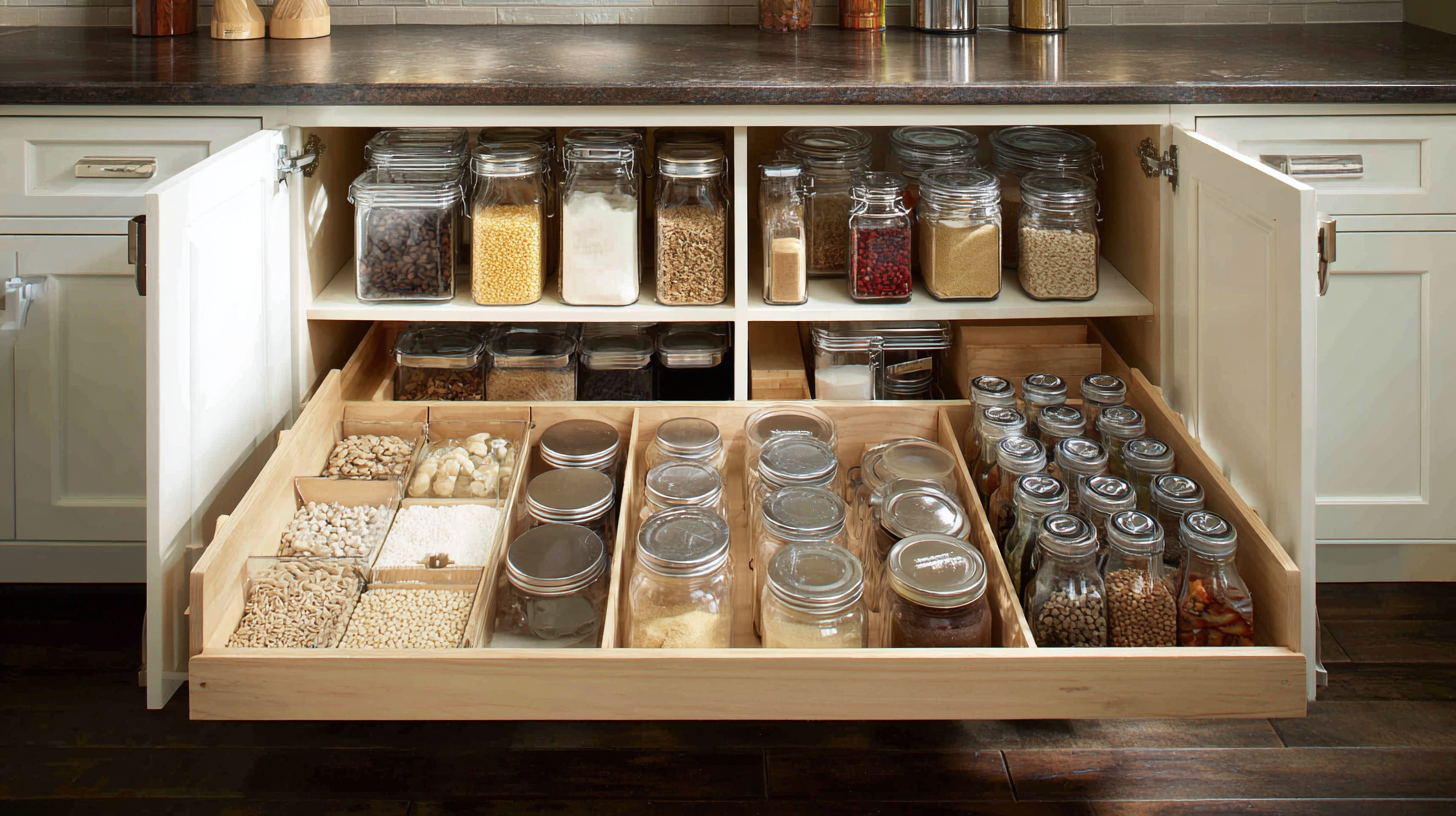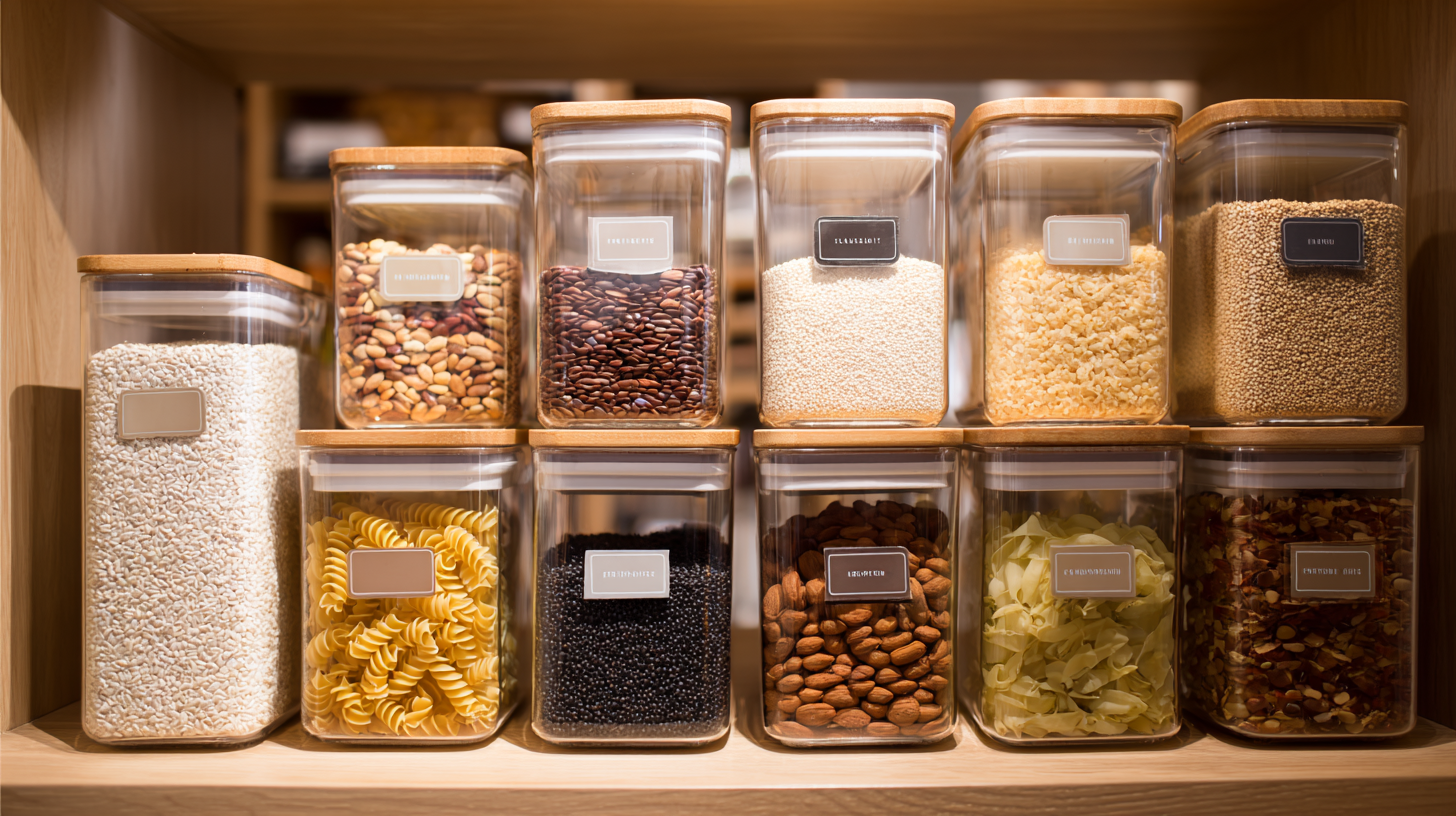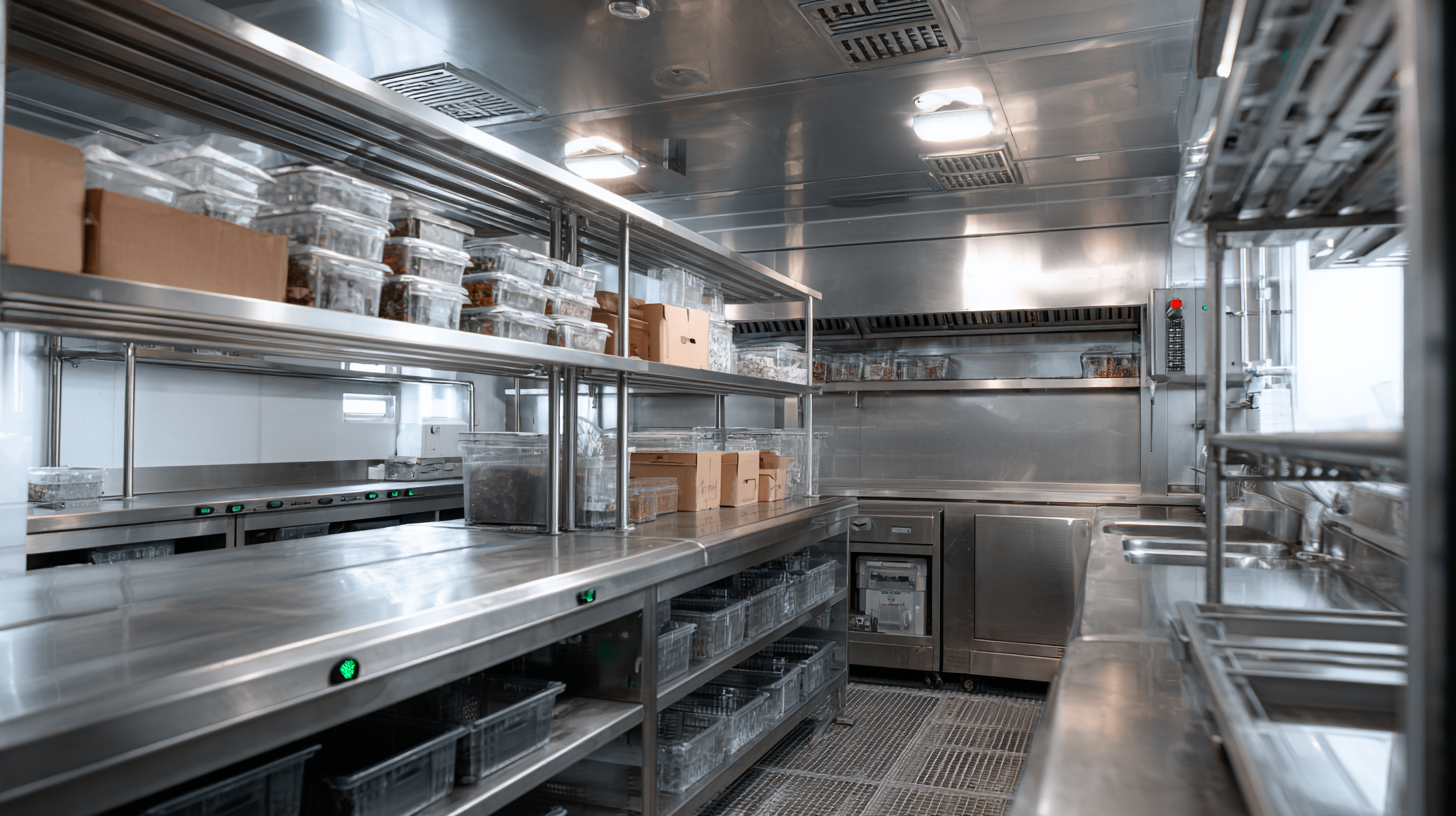In an increasingly globalized market, the demand for efficient Kitchen Storage solutions has surged, with industry reports indicating that the global kitchen storage market is projected to reach $25 billion by 2025, growing at a CAGR of 4.5%. As consumers prioritize organization and efficiency in their kitchens, manufacturers are challenged to navigate the complexities of import and export certifications to meet both quality standards and customer expectations.
 With China emerging as a key player in this dynamic landscape, understanding the certification process is essential for businesses aiming to compete on an international scale. By ensuring compliance with industry regulations, companies can not only enhance their product quality but also expand their market reach, ultimately contributing to the maximization of their global footprint.
With China emerging as a key player in this dynamic landscape, understanding the certification process is essential for businesses aiming to compete on an international scale. By ensuring compliance with industry regulations, companies can not only enhance their product quality but also expand their market reach, ultimately contributing to the maximization of their global footprint.
When selecting the right manufacturer for kitchen storage solutions, it’s crucial to consider several key factors that ensure high quality and compliance with import and export certifications. Firstly, assess the manufacturer's track record in meeting industry standards and certifications. This not only reflects their commitment to quality and safety but also ensures that your products will comply with regulations in your intended markets. Look for certifications such as ISO, FDA approval for food contact materials, and CE marking, which indicate the manufacturer’s adherence to international safety norms.

Additionally, evaluate the manufacturer's experience and expertise in kitchen storage solutions specifically. This includes examining their range of products and materials used. A reputable manufacturer should offer a diverse selection of durable and stylish options, from modular shelving units to innovative space-saving designs. Understanding their production processes and supply chain management can also provide insights into their ability to deliver consistent quality. Make inquiries about their customer service and support, as this is often a good indicator of a manufacturer’s reliability and commitment to building long-term relationships with their clients.
When venturing into the world of importing and exporting kitchen storage solutions, understanding certification requirements is crucial. Numerous regulations ensure that products meet safety, health, and environmental standards, which can vary significantly depending on the country of origin and destination. Familiarizing yourself with these certification guidelines is essential not only for compliance but also to build trust with consumers who increasingly prioritize safety in their kitchenware.
For kitchen products, certifications such as FDA approval, NSF certification, and even eco-labels are key components. These certifications demonstrate that products have been tested for harmful substances and environmental impact, thus assuring buyers of their reliability. Importers and exporters must engage with relevant authorities early in the process to ascertain required documentation and testing protocols, preventing costly delays or penalties. By navigating these certification pathways effectively, businesses can position themselves favorably in the competitive kitchen storage market while ensuring they meet the necessary legal benchmarks for safe and sustainable products.
When exploring quality kitchen storage solutions, understanding key import and export certifications is vital for ensuring safety, durability, and compliance with industry standards. One significant certification to consider is the NSF International certification, which is crucial for ensuring that products meet strict public health standards. According to a report by NSF, over 75% of consumers prioritize certified kitchen products, demonstrating the increasing demand for quality assurance in home products.
Another important certification is the ISO 9001 quality management certification, renowned globally for establishing a framework for quality control processes. Research indicates that companies with ISO certification tend to show a 12% improvement in operational efficiency, which directly impacts the quality and longevity of kitchen storage solutions. Additionally, the FDA's Food Contact Notification allows manufacturers to prove that materials used in kitchen storage are safe for food contact, further emphasizing the importance of certifications in consumer decision-making.
In summary, selecting kitchen storage solutions with appropriate certifications not only enhances safety and quality but also aligns with growing consumer expectations for accountability and performance in the products they use daily.
Navigating the world of import and export certifications can seem daunting, especially for those in the kitchen storage solutions industry. Compliance is not just a regulatory checkbox; it’s a critical component that can significantly impact your business's success. Understanding the specific certifications required for your products is essential. Whether you're dealing with food safety standards, materials regulations, or environmental guidelines, each certification adds credibility to your brand and assures your customers that your products meet high standards of quality and safety.
To streamline the certification process, start by familiarizing yourself with the relevant local and international regulations that may apply to your products. Establishing clear communication with suppliers and regulatory bodies can also provide guidance and support. It’s advisable to keep documentation organized and accessible, as this not only aids in compliance but can also speed up the certification process. By implementing best practices, such as continuous training for your team on compliance updates and trends, you ensure that your business remains resilient in a rapidly evolving marketplace.

When choosing kitchen storage solutions, evaluating manufacturer trustworthiness and relevant certifications is crucial. The certifications not only indicate compliance with safety and quality standards but also reflect a manufacturer’s commitment to sustainability and ethical practices. To ensure that your chosen products are reliable, consider researching certifications like NSF, BPA-free, and ISO standards. These labels can significantly influence your purchasing decisions by providing assurance of product safety and quality.
**Tip 1:** Always check the manufacturer’s website for a list of their certifications and policies. This transparency can help you gauge their credibility and commitment to quality.
Another important aspect is customer reviews and ratings. They can provide real insights into the product's performance and the company's customer service. A manufacturer with numerous positive feedbacks and high ratings is likely to be a trustworthy choice.
**Tip 2:** Look for third-party reviews and testimonials to get an unbiased view of the products. This information can guide you in making informed choices about kitchen storage solutions that truly meet your needs.
